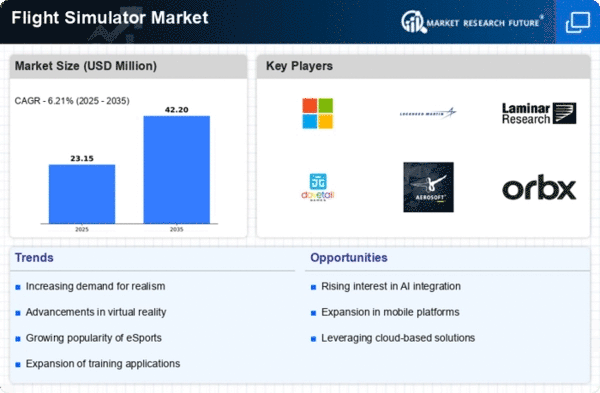Market Trends
Key Emerging Trends in the Flight Simulator Market
The market of Flight Simulator is facing many trends due to the evolving nature of aviation training and simulation. One notable trend is the increased use of sophisticated technologies, for instance VR and AR in flight simulation systems. These immersive technologies help increase the level of realism in training scenarios, so that pilots get a more genuine feeling. These trends not only increase the efficacy of training activities but they also reflect current demands in contemporary aviation local pilots should be able to operate a wide range and highly complicated situations. Other important trends are the use of AI and machine learning in flight simulators. These technologies enable simulators to change and react dynamically to pilots’ actions so these can create training scenarios that are more realistic and difficult.AI and ML are also essential contributors to the data analytics as well as performance metrics being produced, which helps tailor pilot training programs that are driven by data. This development reflects the aviation industry’s focus on life-long learning and pilots as having to remain up to date with current technologies, methods etc. The market for Flight Simulators is moving to more portable and affordable options. As technology develops, flight simulators are getting smaller and cheaper so that they can be operated by small schools of flying as well individual pilots. The use of portable simulators allows training in different locations without necessarily having dedicated and expensive facilities for their installation. Democratization of high-quality flight training is another trend worth mentioning, which promotes overall growth and diversification of the market with flight simulators. The increasing popularity of cloud-based solutions is another major trend in the Flight Simulator market. Cloud-based simulators are scalable, which means users can access training programs and simulations from anywhere without having to be physically present. This not only cuts the infrastructure costs related to conventional simulators but also gives way for collaborative and distributed training scenarios. In an increasingly globalised aviation industry where pilots and training centers are based in geographically disparate locations, the ability to access training modules via globally accessible internet connections is adding more value.


















Leave a Comment